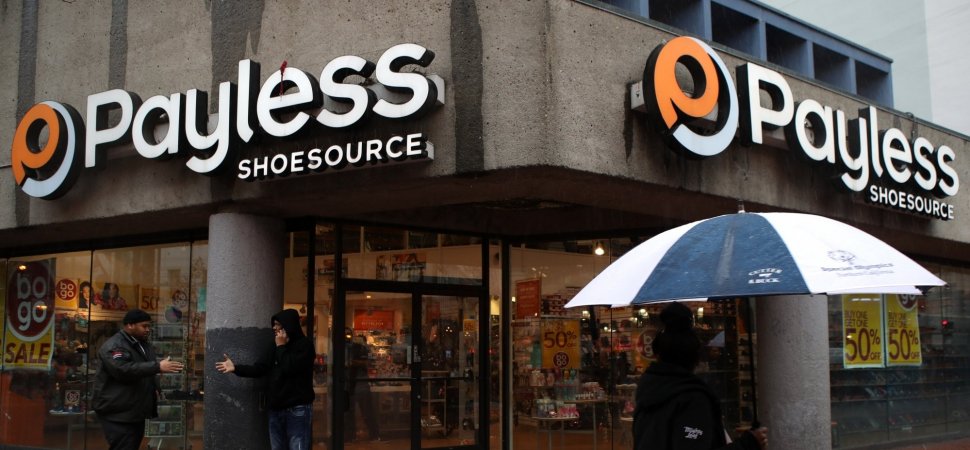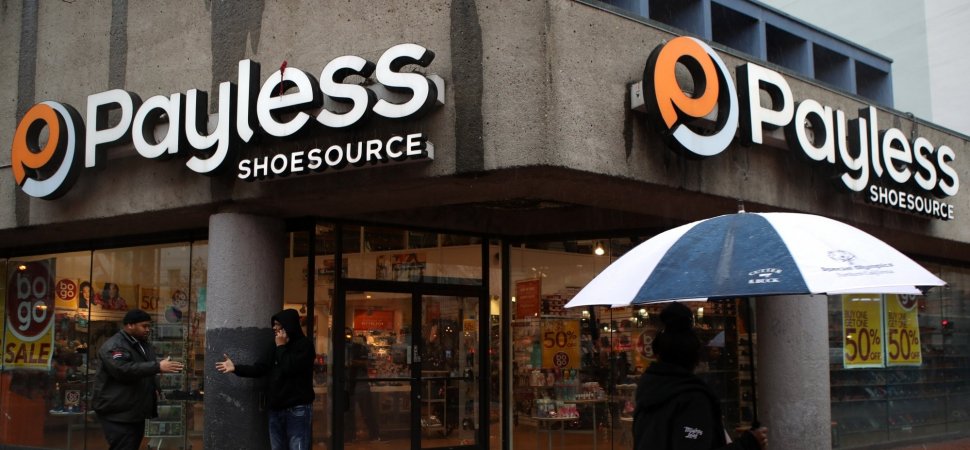
Payless ShoeSource this week filed for Chapter 11 protection and said it would be closing all 2,500 store locations across North America as well as its e-commerce operations. With over 16,000 jobs lost, it is one of the largest retailer liquidation to date, according to the Wall Street Journal.
The closing of the 62-year old chain is probably not shocking to anyone that follows business closely, but it should be disconcerting. Consider that in addition to Payless, we have seen the closing of Toys R Us and Sears in the past year. All three companies were stalwarts and profound leaders in their industries, and their loss is not taken lightly by anyone old enough to remember the internet bubble.
More important, we need see these closings as a sign of change and heed the lessons wisely, because what “killed” all three is not just Amazon or the internet, but a new business paradigm.
I have preached the “death of retail” for a decade. I am not prophetic but rather just have eyes. This is not to imply that businesses should just give up but rather that they adopt to this new paradigm and redefine how smaller retailers can compete. Here are a few things to consider in this regard.
Recognizing Threats
Entrepreneurs are people who act, but they also have a tendency to get caught in “idea lock,” which is the mindset of falling in love with a particular idea and even when all the data and advice points against it.
Entrepreneurs do need tenacity, but they also need to recognize when an idea is dying and requires a pivot or abandoning altogether. Moreover, it has never been more important for business leaders to be proactive rather than reactive when it comes to identifying market and industry trends.
Too Big To Succeed
Most entrepreneurs are competitive by nature and set goals to build something big, identifying large businesses as targets and imagining how to complete on that scale. This is a great mindset, but unless you are a tech company that can scale quickly or backed by a wealthy investor, building and competing on a scale with existing behemoths can be a significant challenge and overburden your efforts.
Instead, consider that there is nothing wrong with starting small and staying under the fray, especially if you are operating in an industry that is changing rapidly. Find highly-tuned niches that are underserved and in which you can create unmatched value and a unique customer experience that will ultimately build loyalty needed to grow long term.
Do Not Alienate Future Customers
While I advocate for finding a niche, your business also needs to understand that the upcoming field of consumers will be much different in their expectations than any before them. They are digital natives and have never experienced a world without the ease and convenience of YouTube and Amazon.
Payless learned this the hard way by calling out young influencers in an advertising campaign during the last holiday season. And although this campaign was not the device that ultimately led to its downfall, the short term goal of attracting immediate revenue threatened the long term sustainability by alienating the same people who could influence young consumers to visit their stores.
Get Political
Undoubtedly, giant retailers, and particularly online retailers, are the primary threat to all retail companies. Walmart, a company I respect, can single-handedly cause the decline of small town shops with just one superstore, and Amazon (and for Payless, it was the double-whammy of Zappos) continues to change how we engage with brands and ultimately shop.
One way retailers can help themselves is becoming politically woke and active. Knowing and engaging with representatives at the state and federal level can help you better understand the influence your business, as a constituent, can have.
In the interest of full disclosure, I am an individual who believes in competitive free-markets with light regulation, but as a consultant with the best interests of my clients in mind, I would never deny them advice that the influence and impact of lobbying regulators and taking an active role in politics can help develop a significant sustainable competitive advantage.
In the end, the closings of so many beloved retailers recently may be sad, but it also provides lessons and opportunities for businesses willing to learn from their losses.
What do you think? What else can we learn from the recent fall of so many beloved retailers? Please share your thoughts with me on Twitter.

